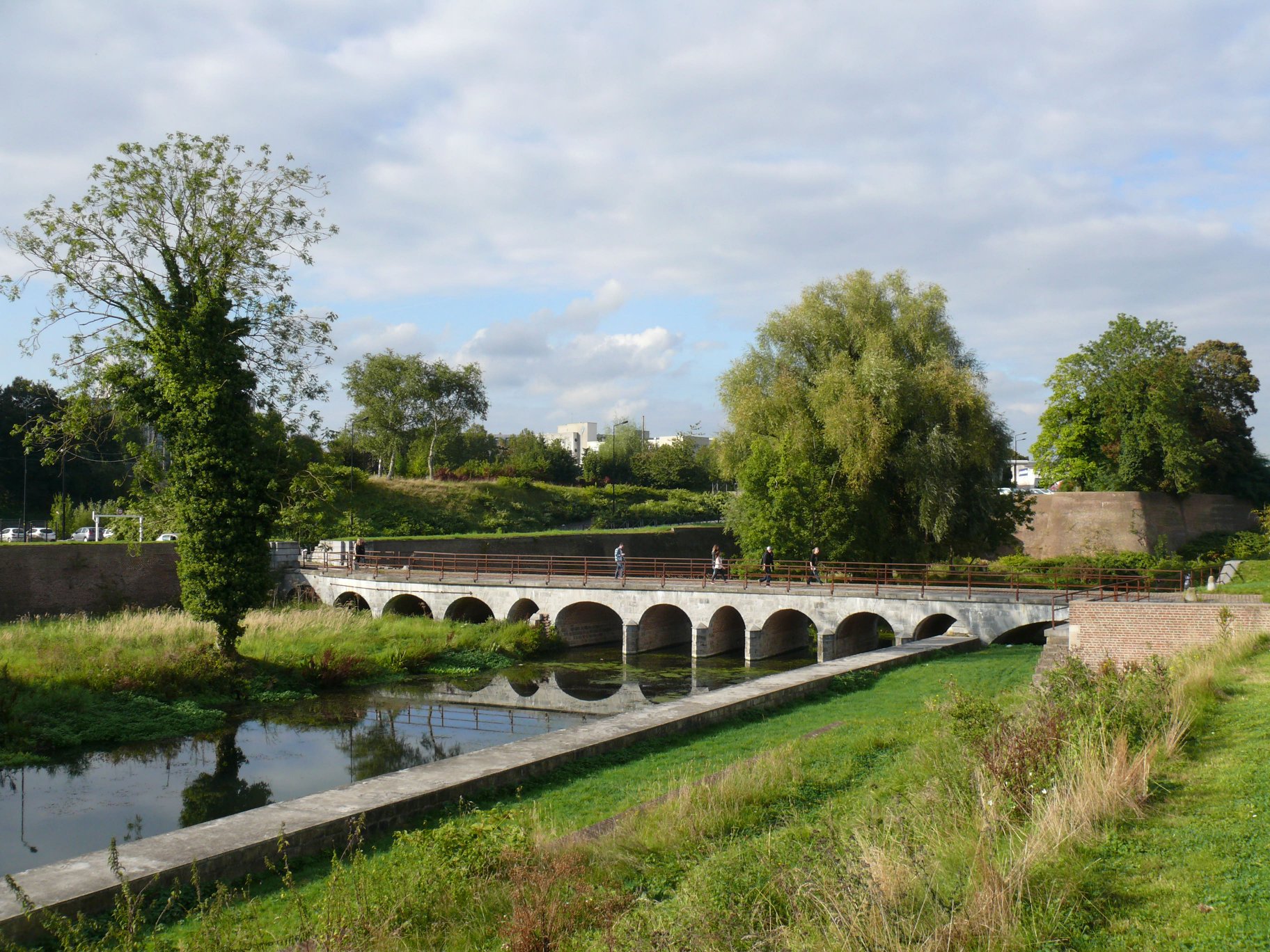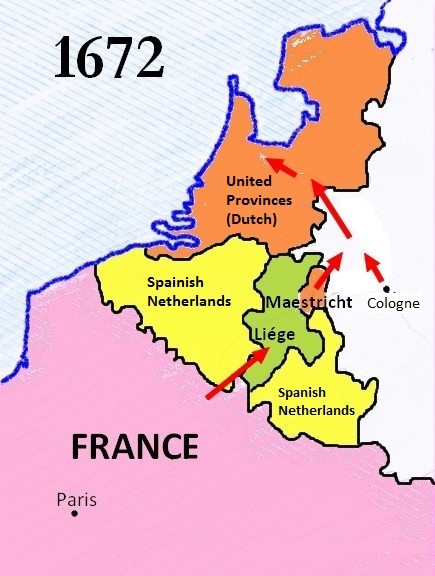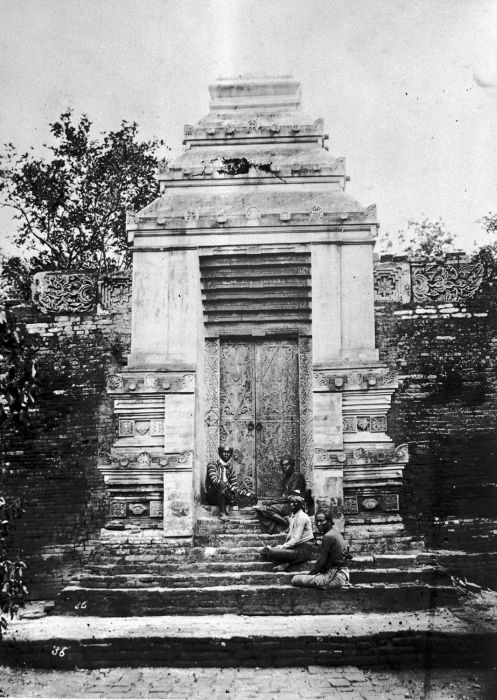|
1677
Events January–March * January 1 – Jean Racine's tragedy ''Phèdre'' is first performed, in Paris. * January 21 – The first medical publication in America (a pamphlet on smallpox) is produced in Boston. * February 15 – Four members of the English House of Lords embarrass King Charles II at the opening of the latest session of the "Cavalier Parliament" by proclaiming that the session is not legitimate because it hadn't met in more than a year. The Duke of Buckingham, backed by Lord Shaftesbury, Lord Salisbury and Baron Wharton, makes an unsuccessful motion to end the session. When the four Lords refuse to apologize, they are arrested and imprisoned in the Tower of London. * February 26 – ** The first arrests are made in the case that will develop into the "Affair of the Poisons" in France, as Magdelaine de La Grange and her accused accomplice, Father Nail, are detained on suspicion of poisoning her lover, a Messr. Faurie. While in prison ... [...More Info...] [...Related Items...] OR: [Wikipedia] [Google] [Baidu] |
Siege Of Valenciennes (1676–1677)
The siege of Valenciennes took place from 28 February to 17 March 1677, during the Franco-Dutch War, when Valenciennes, then in the Spanish Netherlands, was attacked by a French army under the duc de Luxembourg. Over the winter of 1676 to 1677, Valenciennes and Cambrai were subjected to a tight blockade, which prevented reinforcements or supplies reaching them from the outside. French armies also benefitted from superior logistics, which allowed them to begin campaigns far earlier than their opponents. Siege operations began on 28 February, supervised by French military engineer Sébastien Le Prestre de Vauban, and the town surrendered on 17 March; Spain formally ceded it to France under the August 1678 Treaty of Nijmegen. Background In the 1667–1668 War of Devolution, France captured most of the Spanish Netherlands, and the Spanish province of Franche-Comté. Louis XIV relinquished most of these gains in the Treaty of Aix-la-Chapelle, under pressure from the Triple Allianc ... [...More Info...] [...Related Items...] OR: [Wikipedia] [Google] [Baidu] |
Amangkurat II
Amangkurat II (also known as Rahmat; died 1703) was the ''susuhunan'' of the Sultanate of Mataram from 1677 to 1703. Prior to taking the throne, he was the crown prince and had the title Pangeran Adipati Anom. He was the first Javanese monarch to wear European-style uniform, thus gaining the nickname Sunan Amral, Amral rendering the meaning as "admiral" in Javanese. Background Born as Raden Mas Rahmat, he was the son of Amangkurat I of Mataram and Ratu Kulon, daughter of Pangeran Pekik of Surabaya. Amangkurat II had many wives, but he only had one child, Sutikna (later Amangkurat III). According to the ''Babad Tanah Jawi'', Sutikna's mother had used magic on another of Amangkurat II's wives to make them unable to conceive of child. Conflict within family Rahmat was raised in Surabaya. He then moved to the Plered Palace as ''adipati anom'' (crown prince). However, his relation with his brother, Prince Singasari, worsened. There was also news that the position of crown prin ... [...More Info...] [...Related Items...] OR: [Wikipedia] [Google] [Baidu] |
Phèdre
''Phèdre'' (; originally ''Phèdre et Hippolyte'') is a French dramatic tragedy in five acts written in alexandrine verse by Jean Racine, first performed in 1677 at the theatre of the Hôtel de Bourgogne in Paris. Composition and premiere With ''Phèdre'', Racine chose once more a subject from Greek mythology, already treated by Greek and Roman tragic poets, notably by Euripides in '' Hippolytus'' and Seneca in ''Phaedra''. As a result of an intrigue by the Duchess of Bouillon and other friends of the aging Pierre Corneille, the play was not a success at its première on 1 January 1677 at the Hôtel de Bourgogne, home of the royal troupe of actors in Paris. Indeed, a rival group staged a play by the now forgotten playwright Nicolas Pradon on an almost identical theme. After ''Phèdre'', Racine ceased writing plays on secular themes and devoted himself to the service of religion and the king until 1689, when he was commissioned to write ''Esther'' by Madame de Maintenon, the m ... [...More Info...] [...Related Items...] OR: [Wikipedia] [Google] [Baidu] |
Cavalier Parliament
The Cavalier Parliament of England lasted from 8 May 1661 until 24 January 1679. It was the longest English Parliament, and longer than any Great British or UK Parliament to date, enduring for nearly 18 years of the quarter-century reign of Charles II of England. Like its predecessor, the Convention Parliament, it was overwhelmingly Royalist and is also known as the Pensioner Parliament for the many pensions it granted to adherents of the King. History Clarendon ministry The first session of the Cavalier Parliament opened on May 8, 1661. Among the first orders of business was the confirmation of the acts of the previous year's irregular Convention of 1660 as legitimate (notably, the Indemnity and Oblivion Act The Indemnity and Oblivion Act 1660 was an Act of the Parliament of England (12 Cha. II c. 11), the long title of which is "An Act of Free and General Pardon, Indemnity, and Oblivion". This act was a general pardon for everyone who had committe ...). Parliame ... [...More Info...] [...Related Items...] OR: [Wikipedia] [Google] [Baidu] |
Franco-Dutch War
The Franco-Dutch War, also known as the Dutch War (french: Guerre de Hollande; nl, Hollandse Oorlog), was fought between France and the Dutch Republic, supported by its allies the Holy Roman Empire, Spain, Brandenburg-Prussia and Denmark-Norway. In its early stages, France was allied with Münster and Cologne, as well as England. The 1672 to 1674 Third Anglo-Dutch War and 1675 to 1679 Scanian War are considered related conflicts. The war began in May 1672 when France nearly overran the Dutch Republic, an event still known as the ''Rampjaar'' or "Disaster Year". Their advance was halted by the Dutch Water Line in June and by late July the Dutch position had stabilised. Concern over French gains led to a formal alliance in August 1673 between the Dutch, Emperor Leopold I, Spain and Brandenburg-Prussia. They were joined by Lorraine and Denmark, while England made peace in February 1674. Now facing a war on multiple fronts, the French withdrew from the Dutch Republic, retaining ... [...More Info...] [...Related Items...] OR: [Wikipedia] [Google] [Baidu] |
Anthony Ashley Cooper, 1st Earl Of Shaftesbury
Anthony Ashley Cooper, 1st Earl of Shaftesbury PC FRS (22 July 1621 – 21 January 1683; known as Anthony Ashley Cooper from 1621 to 1630, as Sir Anthony Ashley Cooper, 2nd Baronet from 1630 to 1661, and as The Lord Ashley from 1661 to 1672) was a prominent English politician during the Interregnum and the reign of King Charles II. A founder of the Whig party, he was also the patron of John Locke. Cooper was born in 1621. Having lost his parents by the age of eight, he was raised by Edward Tooker and other guardians named in his father's will. He attended Exeter College, Oxford, and Lincoln's Inn. He married the daughter of Thomas Coventry, 1st Baron Coventry in 1639; that patronage secured his first seat in the Short Parliament. He soon lost a disputed election to the Long Parliament. During the English Civil Wars he fought as a Royalist; then as a Parliamentarian from 1644. During the English Interregnum, he served on the English Council of State under Oliver Cromw ... [...More Info...] [...Related Items...] OR: [Wikipedia] [Google] [Baidu] |
Mataram Sultanate
The Sultanate of Mataram () was the last major independent Javanese kingdom on the island of Java before it was colonised by the Dutch. It was the dominant political force radiating from the interior of Central Java from the late 16th century until the beginning of the 18th century. Mataram reached its peak of power during the reign of Sultan Agung Anyokrokusumo (), and began to decline after his death in 1645. By the mid-18th century, Mataram lost both power and territory to the Dutch East India Company (Dutch: ''Vereenigde Oost-Indische Compagnie''; ''VOC''). It had become a vassal state of the company by 1749. Etymology The name ''Mataram'' itself was never the official name of any polity, as the Javanese often refer to their realm simply as ''Bhumi Jawa'' or ''Tanah Jawi'' ("Land of Java"). ''Mataram'' refers to the historical areas of plains south of Mount Merapi around present-day Muntilan, Sleman, Yogyakarta, and Prambanan. More precisely, it refers to the Kota Gede ... [...More Info...] [...Related Items...] OR: [Wikipedia] [Google] [Baidu] |
Jean Racine
Jean-Baptiste Racine ( , ) (; 22 December 163921 April 1699) was a French dramatist, one of the three great playwrights of 17th-century France, along with Molière and Corneille as well as an important literary figure in the Western tradition and world literature. Racine was primarily a tragedian, producing such "examples of neoclassical perfection" as ''Phèdre'', ''Andromaque'', and ''Athalie''. He did write one comedy, '' Les Plaideurs'', and a muted tragedy, ''Esther'' for the young. Racine's plays displayed his mastery of the dodecasyllabic (12 syllable) French alexandrine. His writing is renowned for its elegance, purity, speed, and fury, and for what American poet Robert Lowell described as a "diamond-edge", and the "glory of its hard, electric rage". Racine's dramaturgy is marked by his psychological insight, the prevailing passion of his characters, and the nakedness of both plot and stage. Biography Racine was born on 21 December 1639 in La Ferté-Milon ( Aisne) ... [...More Info...] [...Related Items...] OR: [Wikipedia] [Google] [Baidu] |
Magdelaine De La Grange
Magdelaine de La Grange (c. 1641–1679) was a French fortune-teller involved in the ''Affair of the Poisons''. Her arrest in 1677 marked the opening of the official investigation. She appealed to François-Michel le Tellier, Marquis de Louvois claiming that she had information about other crimes of high importance. Louvois reported to the King, who told Gabriel Nicolas de la Reynie, who, among other things, was the chief of the Paris police, to root out the poisoners. Magdelaine de La Grange worked as a fortune teller after the execution of her husband for receiving stolen goods. Her specialty was to reveal to clients who were worried about their health that they had been poisoned, and offer them antidotes. Since 1669, she lived in luxury at the expense of the rich lawyer Jean Faurye. On 17 August 1676, Magdelaine de La Grange and a man who introduced himself as Faurye appeared before a law clerk. The man said that they were married, and had a will issued to the benefit ... [...More Info...] [...Related Items...] OR: [Wikipedia] [Google] [Baidu] |
January 1
January 1 or 1 January is the first day of the year in the Gregorian Calendar. There are 364 days remaining until the end of the year (365 in leap years). This day is also known as New Year's Day since the day marks the beginning of the year. __TOC__ Events Pre-1600 *153 BC – For the first time, Roman consuls begin their year in office on January 1. *45 BC – The Julian calendar takes effect as the civil calendar of the Roman Empire, establishing January 1 as the new date of the new year. *42 BC – The Roman Senate posthumously deifies Julius Caesar. * 193 – The Senate chooses Pertinax against his will to succeed Commodus as Roman emperor. * 404 – Saint Telemachus tries to stop a gladiatorial fight in a Roman amphitheatre, and is stoned to death by the crowd. This act impresses the Christian Emperor Honorius, who issues a historic ban on gladiatorial fights. * 417 – Emperor Honorius forces Galla Placidia into marriage to Cons ... [...More Info...] [...Related Items...] OR: [Wikipedia] [Google] [Baidu] |
February 26
Events Pre-1600 *747 BC – According to Ptolemy, the epoch (origin) of the Nabonassar Era began at noon on this date. Historians use this to establish the modern BC chronology for dating historic events. * 364 – Valentinian I is proclaimed Roman emperor. * 1266 – Battle of Benevento: An army led by Charles, Count of Anjou, defeats a combined German and Sicilian force led by Manfred, King of Sicily. Manfred is killed in the battle and Pope Clement IV invests Charles as king of Sicily and Naples. * 1365 – The Ava Kingdom and the royal city of Ava (Inwa) founded by King Thado Minbya. 1601–1900 * 1606 – The Janszoon voyage of 1605–06 becomes the first European expedition to set foot on Australia, although it is mistaken as a part of New Guinea. * 1616 – Galileo Galilei is formally banned by the Roman Catholic Church from teaching or defending the view that the earth orbits the sun. * 1775 – The British East India Company factory o ... [...More Info...] [...Related Items...] OR: [Wikipedia] [Google] [Baidu] |
George Villiers, 2nd Duke Of Buckingham
George Villiers, 2nd Duke of Buckingham, 20th Baron de Ros, (30 January 1628 – 16 April 1687) was an English statesman and poet. Life Early life George was the son of George Villiers, 1st Duke of Buckingham, favourite of James I and Charles I, and his wife Katherine Manners. He was only seven months old when his father was assassinated at Portsmouth by the disaffected officer John Felton. Subsequently, he was brought up in the royal household of Charles I, together with his younger brother Francis and the King's own children, the future Charles II and James II. He was educated at Trinity College, Cambridge, where he obtained the degree of Master of Arts in 1642. For a time he was taught geometry by Thomas Hobbes. During this time he was also acquainted with George Aglionby, whose influence he later accredited with persuading him to follow the English King in the Civil War. Involvement in the English Civil War In the Civil War he fought for the King, and too ... [...More Info...] [...Related Items...] OR: [Wikipedia] [Google] [Baidu] |


.jpg)




